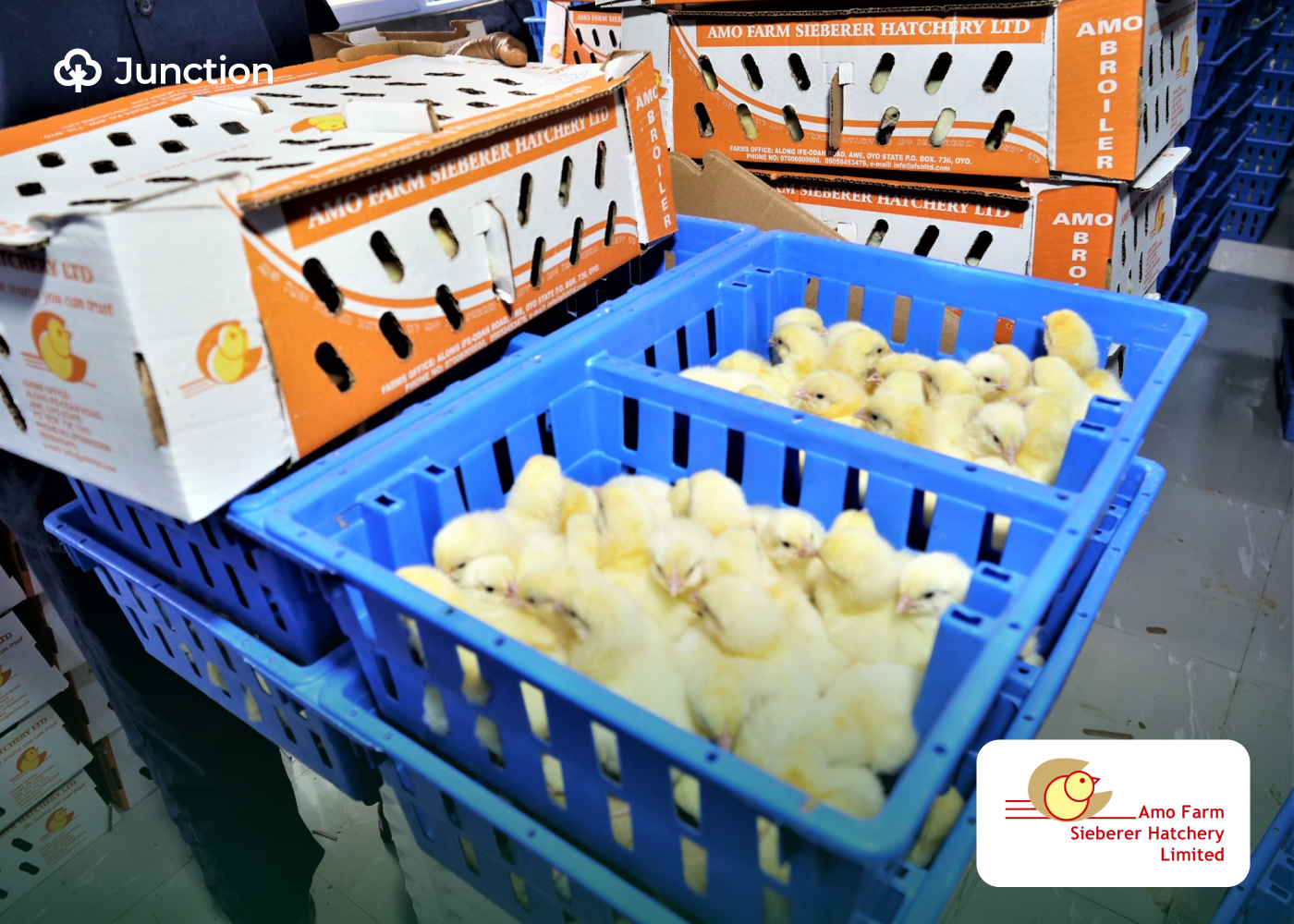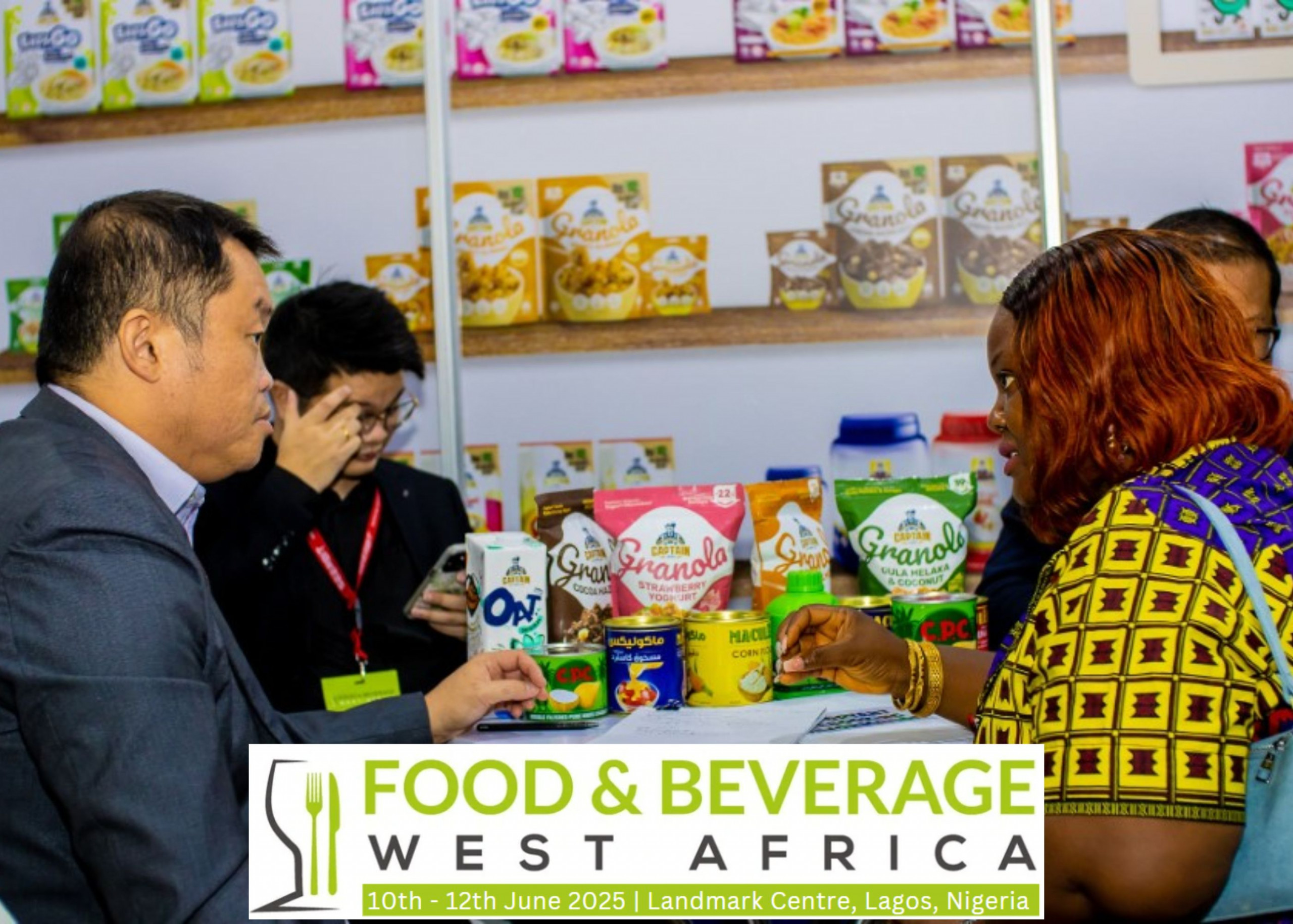At the Future of Agriculture Conference 2025, one name quietly but powerfully rose to the surface: Amo Farm Sieberer Hatchery Limited. While others spoke of ideas, Amo Farm stood out as a company delivering real results. From producing over 1 million day-old chicks weekly, to creating the Noiler breed, to investing in seed multiplication and farmer training, Amo Farm is not just growing poultry, it is cultivating an agricultural future that is inclusive, scalable, and deeply rooted in sustainability.
My decision to interview the company’s representative, Itoro Awala-Ale and her team, was fueled by a desire to spotlight a company that is a quiet giant in the poultry and agribusiness space.
For young Nigerian farmers who struggle with poor chicks and expensive feed, understanding what Amo Farm offers could be the difference between a failing business and a thriving one. This article aims to break it all down with facts, context, and a clear call to action for youth interested in agribusiness.
From acquisition to agribusiness giant
Founded in 2003, Amo Farm Sieberer Hatchery wasn’t built from scratch. Rather, it was the result of a strategic acquisition and rebranding effort. The current ownership took over an existing hatchery business and transformed it into a nationwide and increasingly pan-African enterprise. That same year, Amo Byng Nigeria Ltd., the feed production arm, was born. Together, they laid the foundation for what has now become one of Nigeria’s most integrated agribusiness groups.
Amo Farm today consists of different arms:
- Amo Farm Sieberer Hatchery Ltd. (day-old chicks production)
- Amo Byng Nigeria Ltd. (animal feed production)
- DSL Pharma and Diversay Solutions (animal health and pharmaceutical solutions)
- natnudO Foods (consumer-facing animal protein brand)
Each business works together to deliver a seamless, high-quality farm-to-fork experience that empowers farmers, ensures food safety, and supports national protein sufficiency.
Noiler: a game-changer in backyard poultry
One of Amo Farm’s most remarkable contributions to agriculture is the development of Noiler, a dual-purpose chicken breed that produces both meat and eggs. Introduced in 2014, Noiler was designed specifically for smallholder farmers and rural households that require a resilient, low-cost bird.
Noiler thrives on a combination of commercial feed and scavenged kitchen or farm waste. Its affordability and adaptability make it a practical solution for protein production, especially in economically disadvantaged communities.
“Feed costs represent over 65% of a poultry farmer’s expenses,” Itoro explained. “With Noiler, you can supplement feed with leftover rice, beans, vegetables, or spoiled fruits like watermelon.”
This bird has already impacted over 1.5 million smallholder farmers across Nigeria and 9 more African countries, reducing protein malnutrition and providing women with a source of income. With over 7,000 mother units (brooding farms that raise chicks to five weeks), Noiler’s distribution model is making poultry more accessible to the grassroots.
From hatchery to household
Beyond Noiler, Amo Farm is a model of integration in agriculture. Here’s how the system works:
- Amo Farm Sieberer Hatchery produces over 1 million day-old chicks (DOCs) weekly, including broilers, layers, and Noilers.
- Amo Byng Nigeria Ltd. produces high-quality feed for poultry and ruminants through factories in Awe, Oyo State, and Jos, Plateau State.
- DSL Pharma and Diversay Solutions handle the animal health arm—manufacturing veterinary drugs, offering biosecurity services, consulting, and farm engineering.
- natnudO Foods, the processing and consumer brand, supplies ready-to-cook and ready-to-eat animal protein, including chicken, beef, fish, shrimp, and eggs. Their four processing plants in Oyo, Kaduna, Edo, and Akwa Ibom support nationwide distribution.
Engaging youth through outgrower models
Another revolutionary effort by Amo Farm is the Natupreneur Program, an outgrower scheme that partners with over 6,000 broiler farmers across the country. Farmers are trained and supported with inputs to grow birds that are eventually off-taken and processed by natnudO Foods.
“We work with agriculture students in universities, cooperatives, and individual youth,” the team shared. “We’re building capacity from the campus to the community.”
The Maya investment and vision for the future
In a bold move that signifies the company’s long-term vision, Amo Farm acquired a 1,800-acre farm in Maya, Oyo State, from UAC PLC in March 2025. The aim is to contribute to food security by driving large-scale broiler and beef production, establishing processing plants, and developing modern infrastructure to enhance efficiency and productivity.
“We’re not just thinking about today. Maya is about making high-quality, affordable protein accessible and sustainable for generations,” explained Andy, the company’s media officer.
The Maya farm will focus on:
- Seed multiplication to improve feed crop yields.
- Ruminant feed production helps cut costs in cattle and goat farming.
- Broiler and beef production at scale.
- Farmer training and innovation, making Maya a hub for education and capacity building.
This vision aligns with Nigeria’s urgent need for food security and youth employment, positioning Amo Farm as a central player in national development.
Supplying the supply chain
Amo Farm is also actively working to strengthen local maize and soybean supply chains. The company offtakes over 300,000 metric tons annually, buying directly from smallholder farmers and aggregators. Their recent collaboration with the Kwara State Government provided farmers with agrochemicals and offtake agreements to boost local soybean production.
For young farmers seeking to plug into these value chains, Amo Farm encourages:
- Joining cooperatives
- Registering through local agricultural ministries (e.g., in Kwara)
- Connecting via aggregators supplying to Amo Byng
The message is clear: If you grow it, there is a market.
Challenges in the system & Amo Farm’s push for solutions
Despite its success, Amo Farm faces systemic challenges that affect the entire agribusiness sector:
- Infrastructural gaps: Poor roads and logistics limit product movement.
- Power supply: Hatcheries and factories need 24/7 electricity, but Nigeria’s power situation forces reliance on costly diesel.
- Foreign exchange instability: Many inputs, including pharmaceutical ingredients, still rely on imports, which are always affected by the unstable exchange rate
- Smuggled frozen foods: Unregulated products undercut local efforts, affecting natnudO Foods’ market.
- Multiple taxation and bureaucracy: Engaging with multiple agencies and tax bodies raises operational costs.
Still, Amo Farm is proactive. They engage policymakers, share insights at national forums, and collaborate with ministries at both state and federal levels. The farm also engages in advocacy and alternative solutions like scaling local production, expanding partnerships, and strengthening its ecosystem.
“We can’t wait for perfect conditions. We’re investing, innovating, and empowering so that the future we talk about becomes a reality,” Itoro affirmed.
Agriculture is your opportunity
To Nigeria’s youth aged 18-45, this is more than a spotlight article. It’s a challenge. Agriculture is no longer about hoes and cutlasses. It’s about systems, technology, logistics, and smart partnerships.
With programs like Noiler farming, Natnupreneur, and the upcoming training hub in Maya, Amo Farm is opening the door wide for youth to enter, learn, and grow.
If you want to:
- Raise birds with low cost and high yield
- Join a market-ready value chain
- Partner with a brand that off-takes what you produce
- Plug into seed, feed, and livestock systems
…then Amo Farm is offering you a tested, scalable path forward.




Hello, do you sell one day chick , Noiler outside Nigeria
There are information on how to reach Amo Farm on their website ( https://afshltd.com/ ). you can check that out and make your enquiry.